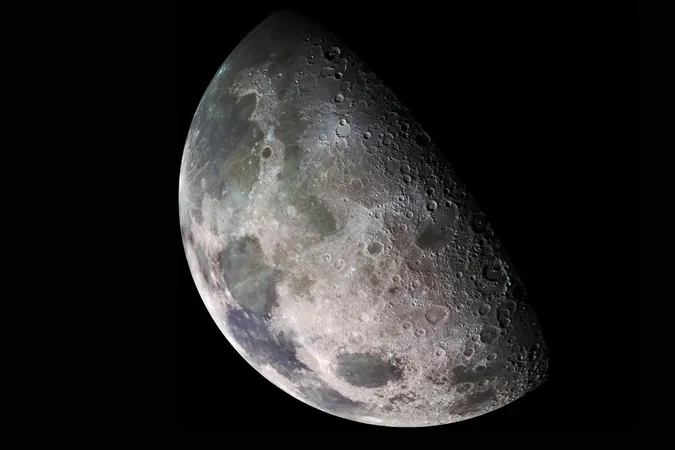
Shocking Discovery: Ancient Zircon Confirms Mars Once Had Hot Liquid Water!
2024-12-09
Author: Jacob
Groundbreaking Study Reveals Ancient Water on Mars
A groundbreaking study has unveiled that Mars harbored hot, liquid water approximately 4.45 billion years ago, a revelation that could reshape our understanding of the Red Planet and its potential for ancient life. The key to this discovery lies in a minuscule zircon grain sourced from the Martian meteorite known as 'Black Beauty.' This meteorite, found in the Sahara Desert in 2011, is not just an extraterrestrial rock but a time capsule that may hold secrets about Mars's liquid past.
Zircon Grain and Its Implications
Scientists analyzed the zircon, which is smaller than a human hair, and discovered that it contains minerals that can only form under water. This finding suggests that early Mars could have been similar to early Earth, a planet known for its warm, wet conditions suited for microbial life. The presence of hot water implies environments akin to hydrothermal vents or hot springs, which support resilient microbial life on Earth today.
Resemblance Between Early Mars and Earth
Dr. Aaron Cavosie, a geologist from Curtin University in Australia, remarked on the resemblance between early Mars and Earth, emphasizing that both planets exhibited wet conditions during the nascent stages of the Solar System. While Earth's oldest known zircons indicate that liquid water was present at least 4.3 billion years ago, the zircon from 'Black Beauty' suggests that Mars might have enjoyed a water-rich environment even before that.
Significance of the Research
The significance of this research extends beyond mere curiosity. Previous studies have highlighted abundant signs of water from Mars's Noachian period (4.1 to 3.7 billion years ago), reinforcing the notion that the two planets shared a common wet past. However, the paths of Mars and Earth diverged over billions of years, and understanding why remains a challenge for scientists.
Mars's Violent History
The discovery of the zircon grain has shed light on Mars's violent history as well. The researchers determined that a massive asteroid impact struck the planet during the zircon's formation roughly 4.45 billion years ago, which was confirmed through nanoscale microscopy that detected traces of iron, yttrium, aluminum, and sodium within the mineral. These elements are indicative of the geochemical interactions that would later occur in Earth's magmatic-hydrothermal systems, like those at the Olympic Dam in South Australia.
Cosmic Connection and Future Exploration
This cosmic connection reveals that Mars once experienced similar geological processes that allowed hot, water-rich fluids to interact with its rocks. While researchers have yet to ascertain the exact volume of water present, this significant finding reinforces the idea that Mars was not always the dry, desolate landscape we recognize today.
Hopes for Discovering Ancient Life
As Mars exploration continues to advance, these insights into its watery past could fuel future missions and studies aimed at discovering if life ever thrived on our neighboring planet. Will we uncover evidence of ancient Martian microbes hidden beneath the surface? As we unravel more of Mars's enigmatic history, one thing is clear: our quest to understand life beyond Earth is just beginning!
Conclusion
Stay tuned for more thrilling revelations from our exploration of the cosmos!









 Brasil (PT)
Brasil (PT)
 Canada (EN)
Canada (EN)
 Chile (ES)
Chile (ES)
 España (ES)
España (ES)
 France (FR)
France (FR)
 Hong Kong (EN)
Hong Kong (EN)
 Italia (IT)
Italia (IT)
 日本 (JA)
日本 (JA)
 Magyarország (HU)
Magyarország (HU)
 Norge (NO)
Norge (NO)
 Polska (PL)
Polska (PL)
 Schweiz (DE)
Schweiz (DE)
 Singapore (EN)
Singapore (EN)
 Sverige (SV)
Sverige (SV)
 Suomi (FI)
Suomi (FI)
 Türkiye (TR)
Türkiye (TR)